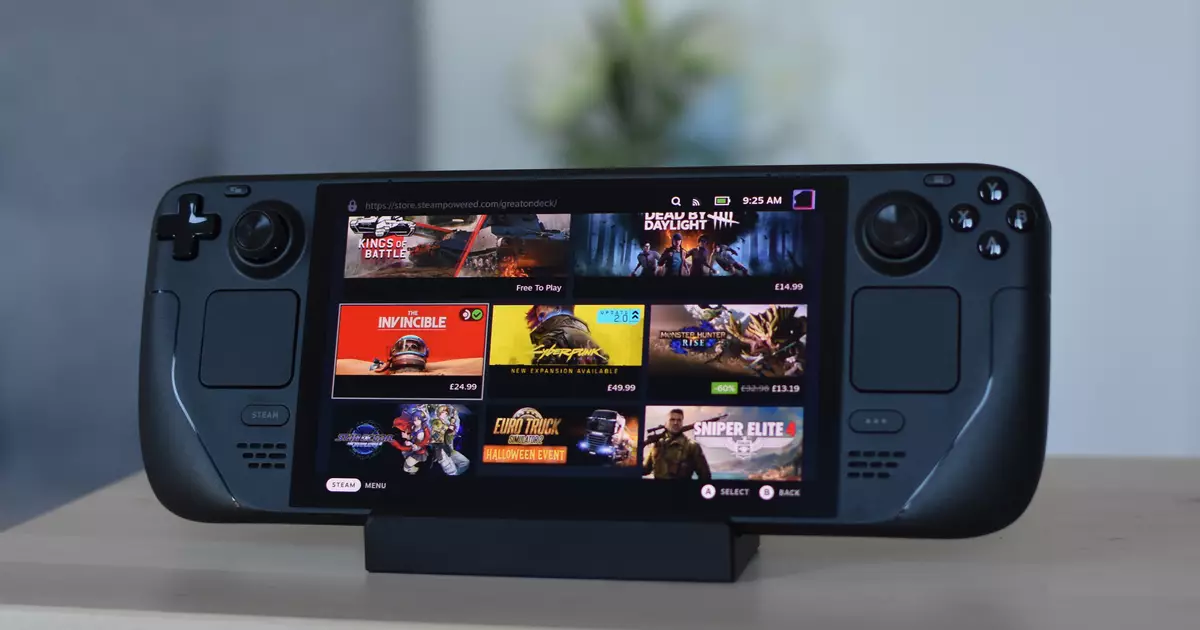The gaming industry is continuously evolving, with hardware advancements playing a crucial role in this transformation. Recently, reports have emerged suggesting that Valve, the innovative company behind iconic platforms such as Steam, may be pivoting toward ARM architecture for their upcoming hardware. This is particularly intriguing considering the firm’s previous forays into hardware with products like the Steam Deck, Valve Index, and the Steam Deck OLED. With ARM processors being widely adopted across various devices, including the Nintendo Switch and Apple’s recent offerings, this proposed shift to ARM could ignite a new wave of possibilities for PC gaming.
Recent findings from SteamDB have uncovered a software package labeled ‘ValveTestApp3043620’, which has been associated with a diverse array of PC games, such as Garry’s Mod, Hollow Knight, and Among Us. This app features tags associated with ‘proton-arm64ec’ and ‘proton-arm64ec-experimental’, suggesting Valve is experimenting with a version of Proton that allows compatibility for games on ARM64 processors. Proton, Valve’s compatibility layer designed to facilitate Windows games running on the Linux-based SteamOS, has impressed gamers with its functionality. However, this hints at much broader ambitions for Valve regarding its hardware capabilities.
While some speculate that this could lead to accessibility improvements for MacBook gamers or a more robust SteamOS for Apple’s M-series chips, others see a potential strategic pivot for Valve’s hardware division. Since the introduction of Steam Machines a decade ago, Valve has showcased a commitment to hardware innovation, and a move toward ARM could reinvigorate their offerings with more power-efficient solutions.
One of the most compelling arguments for adopting ARM architecture relates to energy efficiency. ARM processors are typically recognized for their ability to deliver superior performance per watt when compared to traditional x86 chips. Consequently, this could enable Valve to produce new iterations of the Steam Deck or even novel wireless VR systems that boast longer battery life and thermal efficiency—traits avid gamers deeply value.
However, the road ahead is fraught with potential pitfalls. A fundamental concern arises from the fact that most current PC games are designed specifically for x86 architecture. Transitioning these games over to a completely different architecture like ARM poses significant compatibility challenges, particularly in maintaining optimal performance levels. While ARM chips have evolved significantly and now rival their x86 counterparts in raw power, full compatibility with the vast library of existing PC titles remains uncertain.
Valve would be tasked with implementing an emulation layer that might inadvertently slow down games and influence the overall gaming experience. Although Proton has continually pushed the boundaries of compatibility, the challenge presented by the shift to ARM could require a meaningful overhaul of existing systems.
Given Valve’s track record and ambitious trajectory, the chatter surrounding an ARM-switch cannot be taken lightly. Speculations about a next-generation Steam Deck powered by ARM may be premature, especially considering insights shared by Valve suggesting a significant wait for a new model. Nonetheless, the prospect of a dedicated, standalone VR headset powered by ARM could be more viable.
With the success of mobile games and their rising popularity, should Valve harness the power of ARM architecture, there lies a golden opportunity to integrate mobile titles into the PC ecosystem easily. Traditional emulation practices often struggle to bridge the gap effectively, but ARM’s compatibility with Android may pave the way for a seamless gaming experience.
Whether Valve’s next hardware venture will incorporate ARM processors remains to be seen, but the implications of such a shift are profound. With both opportunities and challenges on the horizon, gamers and industry insiders alike should keep a close watch on Valve as they navigate the intricacies of hardware evolution in an increasingly competitive landscape. As the boundaries of gaming hardware continue to expand, companies like Valve will undoubtedly play a pivotal role in shaping the future of gaming.


Leave a Reply